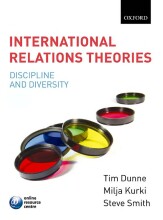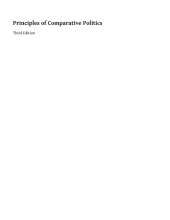Neoliberalism - Book chapter Sterling-Folker
10 important questions on Neoliberalism - Book chapter Sterling-Folker
What is the central concern of neoliberalism in International Relations, according to the book chapter by Sterling-Folker? And what has made this easier in the 20th century?
On what point concerning the international system does neoliberalism agree with the realist tradition in IR? How is this concept still different in both traditions, also concerning cooperation?
How did this difference between the neoliberal and realist view on anarchy emerge in the 20th century?
- Increasing interdependence: involves the relationship of mutual dependence in which actions and interests are intertwined;
- The USA as hegemon after WWII causes stability.
- Higher grades + faster learning
- Never study anything twice
- 100% sure, 100% understanding
What characterises a formal institution in neoliberalism? Name an example of a contemporary formal institution.
What characterises an informal institution or international regime (as defined by Krasner) in neoliberalism? Name an example of a contemporary informal institution.
What are the two barriers to effective cooperation between states in the international system, according to neoliberalists? How can these barriers be overcome?
- Lack of information/transparency
- The incentive to 'cheat' on one's partner or the fear of being cheated --> mistrust.
However, neoliberalists found that repetition of meetings and future expectation of further cooperation makes actors less scared of being cheated on and to cheat.
What are the 3 broad challenges in international institutional design, according to the book chapter on neoliberalism by Sterling-Folker?
- Bargaining
- Defection
- Autonomy
What does regime theory in IR mean and what does it assume?
What does regime theory in neoliberalism examine?
What are the features of liberalism?
- Right to own property;
- Possibility of progress;
- Multilateralism.
The question on the page originate from the summary of the following study material:
- A unique study and practice tool
- Never study anything twice again
- Get the grades you hope for
- 100% sure, 100% understanding































